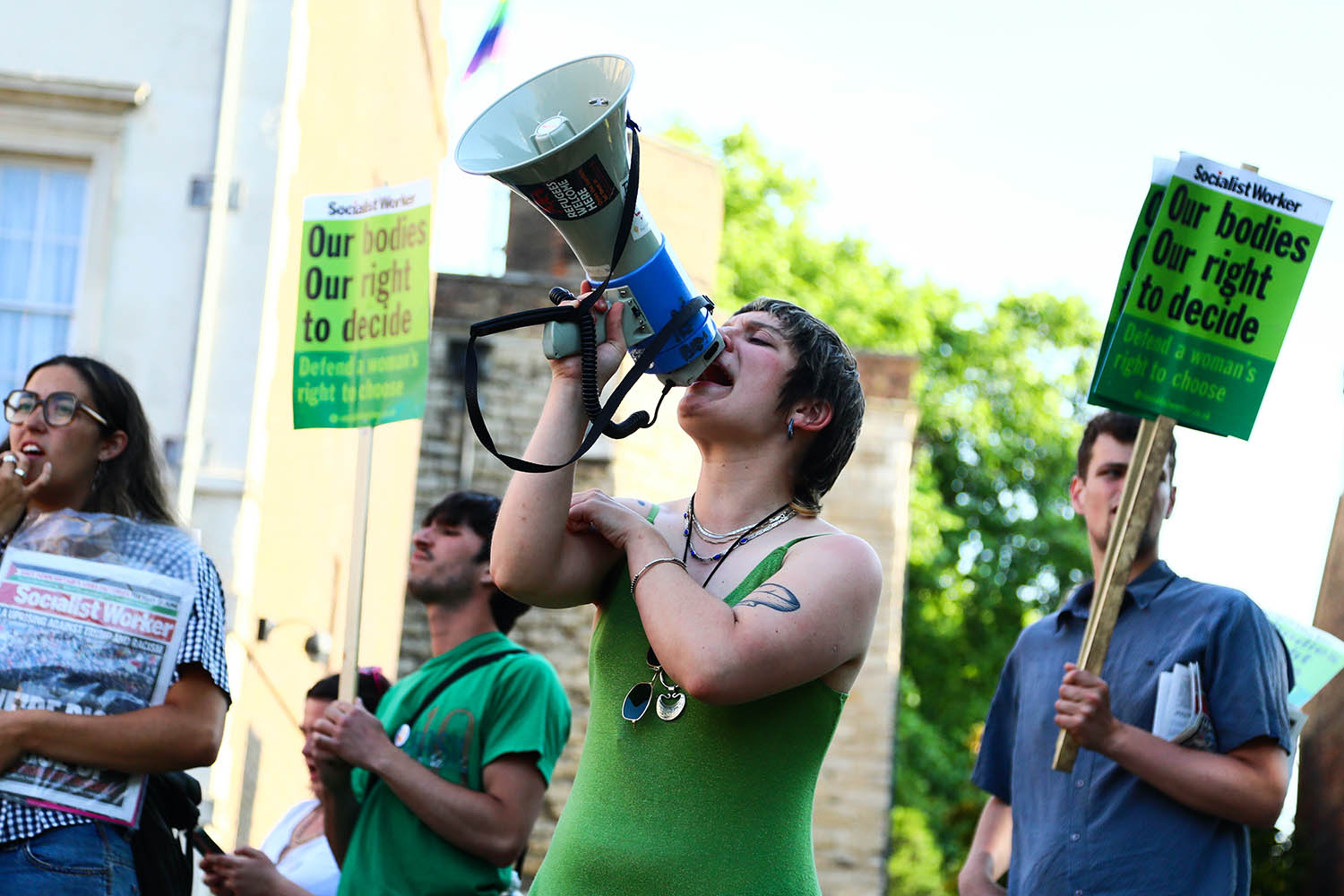Women who have been investigated and prosecuted for illegally ending their pregnancies have said they feel “finally free” after MPs voted to decriminalise abortion in England and Wales.
On Tuesday night, 379 MPs (a 242 majority) voted in favour of an amendment to the government’s crime and policing bill, tabled by Labour backbencher Tonia Antoniazzi, which removes women from the criminal law in relation to their own pregnancy. It is the biggest change to abortion law in England and Wales in a generation and ends the threat of investigation, arrest, prosecution or imprisonment.
Nicola Packer, who was found not guilty earlier this year of procuring an illegal abortion after years of investigation, said she was delighted.
“I can finally get on with rebuilding my life, along with all the other women who’ve been forced to suffer,” she said.
Another woman, who was denied contact with her children while police investigated her for a suspected illegal abortion, and who asked to remain anonymous, told The Observer she “couldn’t believe” the amendment had passed. “Knowing that no woman will ever have to go through what I did … It feels amazing to be on the side of history,” she said.
Parliament has sent a powerful signal that women’s rights and autonomy matter
Parliament has sent a powerful signal that women’s rights and autonomy matter
Prof Ranee Thakar
Abortion providers and healthcare professionals had been calling for reform after a recent rise in investigations and prosecutions of women, like Packer, accused of illegally ending their pregnancies under the 1861 Offences Against the Person Act.
Antoniazzi’s amendment does not remove the legal requirements put in place by the 1967 Abortion Act, which allows women to end their pregnancies under medical supervision up to 24 weeks or beyond in certain medical circumstances.
The law change also does not prevent, for example, an abusive male partner from being prosecuted for forcing or coercing a woman to have an abortion – or a medical professional acting outside the legal requirements of the act.
A rival amendment tabled by Stella Creasy also sought to decriminalise abortion by going further than Antoniazzi and proposing abortion be recognised as a human right. However, abortion providers did not support Creasy’s amendment and it was not put to a vote.
Antoniazzi said: “Parliament has stood up for women making progress on our rights.”
Newsletters
Choose the newsletters you want to receive
View more
For information about how The Observer protects your data, read our Privacy Policy
Prof Ranee Thakar, president of the Royal College of Obstetricians and Gynaecologists (RCOG), one of 50 organisations who had called for decriminalisation, said the vote “sends a powerful signal that women’s rights and autonomy matter”.
Thakar also said it was “absolutely right” that a separate amendment, tabled by Conservative MP Caroline Johnson, which sought to roll back access to abortion pills via telemedicine – a telephone consultation – was rejected by MPs.
“This recognises the wealth of evidence showing telemedicine for early medical abortion is safe, enables women to access treatment sooner, and is preferred by women,” Thakar said.
Heidi Stewart, chief executive of the UK’s leading abortion provider, the British Pregnancy Advisory Service (BPAS), said the vote was a “hard won victory” and a “landmark moment for women’s rights in this country”.
During yesterday’s debate, several MPs suggested further reforms would be needed to protect reproductive rights and access to abortion in the UK. Dr Jonathan Lord, co-chair of RCOG’s abortion taskforce, said that although he was celebrating the result, “it does not fix the underlying flaws that come from controlling essential healthcare through criminal law rather than robust healthcare regulation”.
He added: “There are additional safeguards we need to implement in the House of Lords to ensure all women remain safe from the threat of prosecution and do not suffer detriment after they have fallen under suspicion.”
Last month, The Observer reported that the National Police Chiefs’ Council had issued guidance suggesting officers could search women’s homes for abortion drugs and check their phones for menstrual cycle tracking apps after unexpected pregnancy loss.
The MPs’ historic vote comes as reproductive rights are being rolled back in the US. During the debate, Labour’s Tom Hayes, who co-sponsored the amendment, highlighted how the BPAS-run abortion clinic in his Bournemouth constituency had been singled out by US vice-president JD Vance, who has weighed in to the debate about buffer zones around clinics in the UK to protect women seeking treatment being targeted by anti-abortionists in the street.
“I have spoken with the people who work at that clinic and they are scared. They want support for the reproductive rights of women,” Hayes said.
Dr Ed Frew, deputy chair of the British Medical Association ethics committee, said it would “continue to push for wider reform of abortion law”, to include removing potential criminal sanctions for medical professionals and making it easier for women to legally access abortion in the first trimester (up to 12 weeks).
“The main need now is to build on this historic vote and reform our whole abortion law so that it is fit for another 50 years,” Lord said.
Photograph by Alishia Abodunde/Getty



